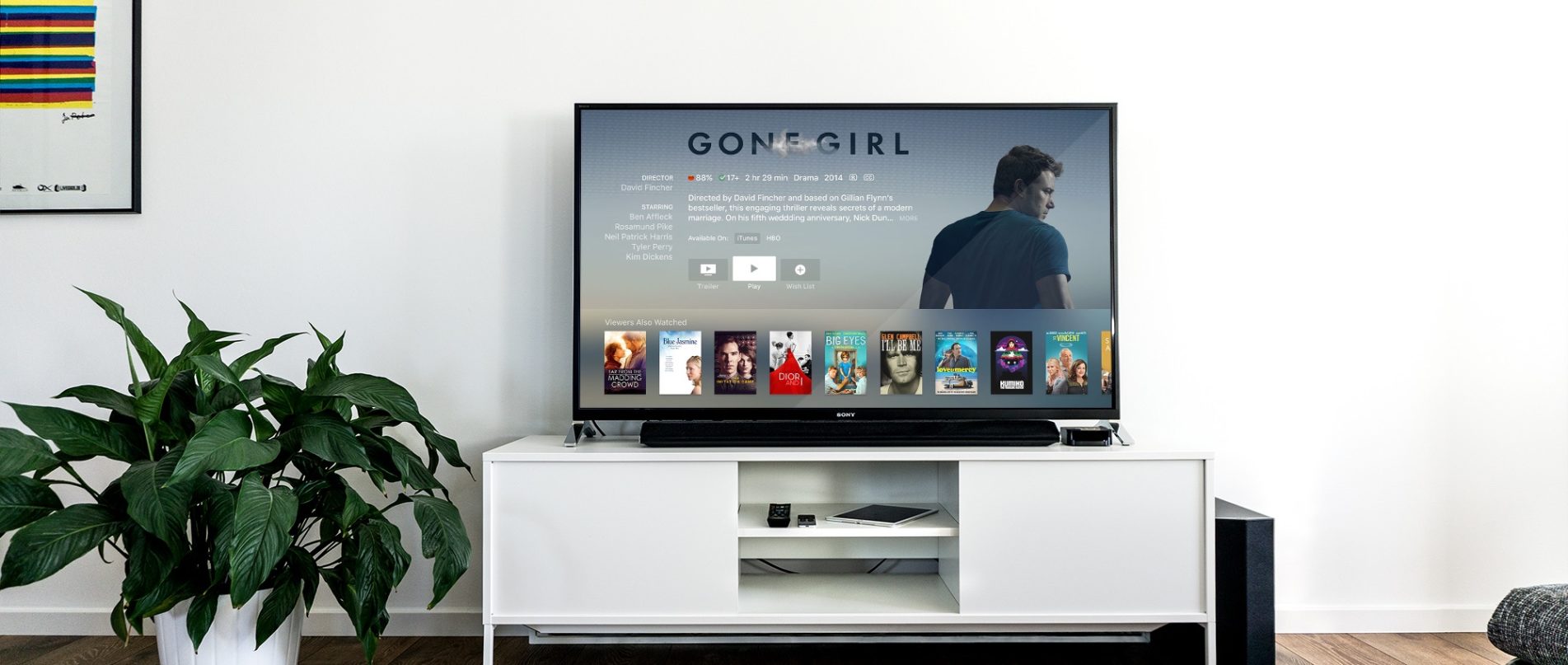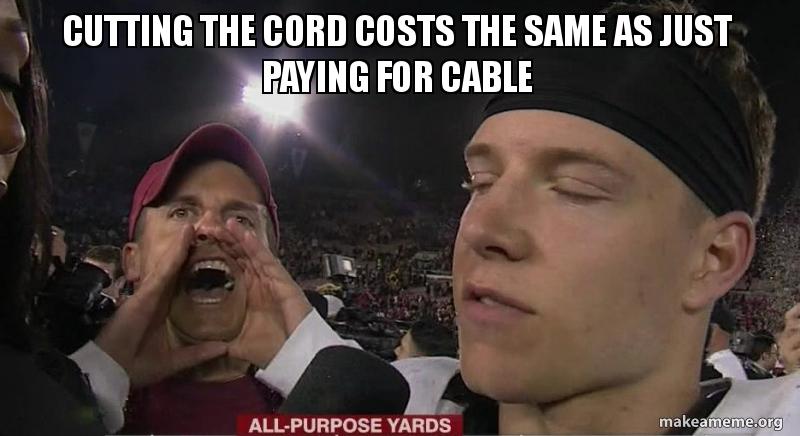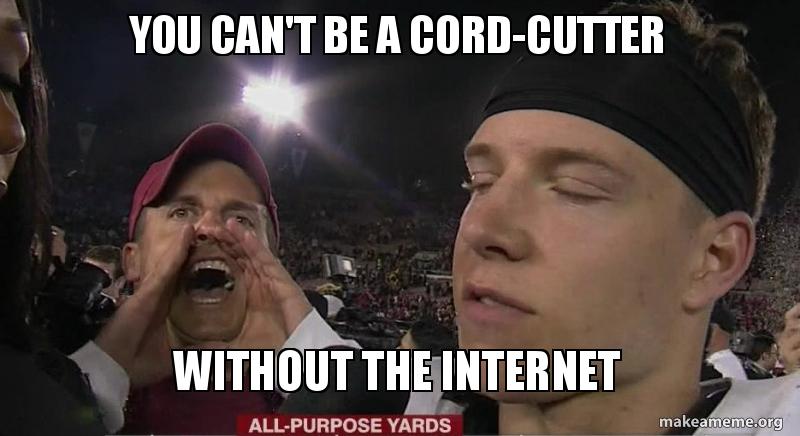
Prompt Images
Rooting for Big Cable companies like Comcast or Time-Warner is like rooting for Hitler, cancer, or Duke basketball. We all know evil when we see it, so let me say this loud and clear from the start—I’m not rooting for Big Cable.
But just being an alternative to Big Cable alone doesn’t automatically make you good, like some benevolent or morally righteous savior. And that’s why I’m here to tell you that “cord-cutting” is the biggest sham around.
Cord-Cutting: The Hipster Millennial Sham
Yeah, yeah, yeah. Go ahead and @ me bro with all of your catchy headlines about how cord-cutting is the future and all of these millennials are ditching Big Cable in favor of streaming options. First of all, reports of Big Cable’s demise are greatly exaggerated—in fact, 72 percent of subscribers are happy with their cable plans—so we’re still talking about a drop in the bucket, not a revolution.
Secondly, and most importantly, streaming options don’t offer a better value, product, or service.
I’ve spent the last few years doing highly scientific research (i.e., arguing with friends at bars) about this, and two universal truths have emerged:
- When you add up the costs of building a moderate non-cable package, it ends up costing roughly the same as a traditional Big Cable package; and
- You’re all a bunch of moochers.
Paying More for Less

Anytime someone tells me “I cut the cord and only pay $50 a month,” it’s always followed by admitting how they steal their parents’ HBO GO password, share a Netflix account with their college roommate, and re-route their ISP address to Australia so they can use MLB TV to get around local blackout restrictions. And don’t get me started on the “my uncle has a Slingbox” hypocrites.
Streaming is also an inferior product. We’ve come a long way in the last 10 years, but buffering and crashing still happen regularly. Last year about 75 hungover people streaming the Rose Bowl caused WatchESPN to crash. Imagine 112 million people trying to stream the Super Bowl. You know what doesn’t buffer or crash? Watching a repeat of Two and a Half Men on CBS thanks to Big Cable—that’s just 20 blissful minutes of top-notch humor in the Golden Age of Television.
Not convinced yet? How about the simple fact that when someone says they’re “cord-cutting,” they’re conveniently forgetting about the cord that is the goddamn internet. What “cord-cutting” really means is you’re now just paying the exact same company—at a higher rate—for internet, as opposed to a lesser cost-per-service for internet and cable.
CORD-CUTTING IS THE INTERNET, AND BIG CABLE IS ALSO BIG INTERNET. Einhorn is Finkle, Finkle is Einhorn, people.

Net Neutrality and Cord-Cutting
All of this doesn’t even address the orange man-in-the-room, and his battle against net-neutrality. Again, I’m not advocating for this, but there is a real chance that the incoming administration may eliminate the FCC’s efforts to protect and enforce net neutrality, so you may have to pay even more to stream the next Netflix documentary about someone who most-definitely committed a murder but should be let of jail because of [good looks / mental illness / choose your own adventure].
When it comes down to it, the only sure things certain in life are death, taxes, and paying Big Cable. Isn’t it easier to just pay one company instead of ten?
Yes, Big Cable is the devil. They make you pay for channels you don’t want, have terrible customer service, and make you threaten to cancel every two years to get a new promotional rate. But they’re the devil I know, and for whom I possibly have Stockholm Syndrome. It’s time to ignore the sham that is cord-cutting and accept our cable overlords.
This piece is a fiery rebuttal to Josh Bard’s “My Breaking Point: Cutting the Cord” piece, re-published last week. The original was part of our #BReakup prompt responses, which corresponded with this summer’s #BRexit.



